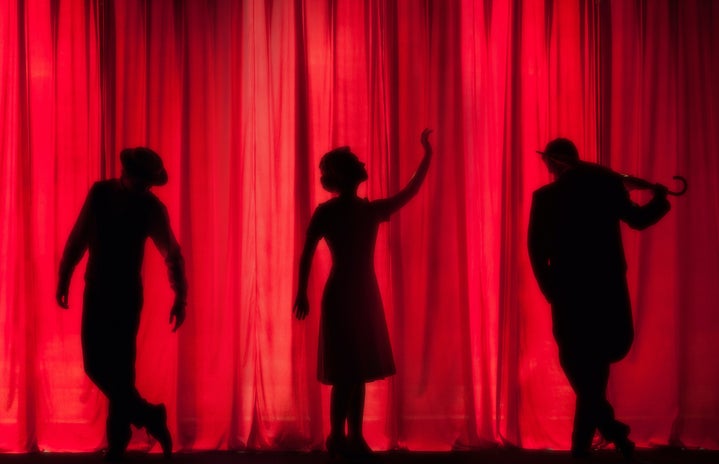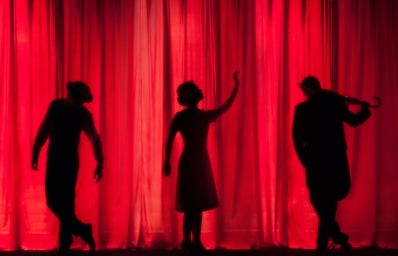This year’s winter mainstage production Electra tackles the concepts of control, violence, and family- particularly in regard to the place of women in society. This ancient Greek tragedy follows a young protagonist with the title name seeking to avenge her father’s death. Although the entrenched gender norms of ancient Greece are present throughout, Electra is portrayed as a strong-willed woman determined to defy these expectations and make her passions known.
Standing beside Electra are her warriors, ready to fight at a moment’s notice. These four women encapsulate female strength, as they are the eventual catalysts for the story’s apex and perform acts often thought of as quite masculine. Another notable character is Electra’s mother Clytaemnestra, an equally, if not more powerful woman, who fights for her version of justice- contrary to her eldest daughter’s wishes.
Sophocles presents a contrast to the way in which Electra lives her life through that of her sister Chrysothemis. There are a number of instances in which the latter tries to talk the former down from her lofty and likely dangerous ideas with words like “[y]ou’re not a man, but a woman” and “you haven’t the strength to conquer your foes.” By including this foil, the audience sees two very different portrayals of women: one who adapts to please others and one who could care less about societal projections of how she “should” act.
The last group of women included in Sophocles’ adaptation of Electra’s story are the Furies. This trio of ladies are as terrifying as their label suggests, as they hunt and punish “those who spill blood of their blood.” Despite the wretched state of many female citizens, often the most powerful creatures are portrayed as women. It is clear that the themes of Greek mythology regarding women differ greatly from the public’s sexist opinions.
The audience gets an inside look into the lives of ancient Greek family troubles through this play. The terminology used about Greek gods reminds us that the ancient Greeks worshiped these omniscient beings who controlled the outcomes of their lives and prayed to them to right their difficulties. The influential women in this show are a reflection of the Spartan ideals of women participating greatly in society which reminds us to always fight our wars with the help of women!
Come see Electra February 25-28! If you are interested but cannot make it, the stage play is available in its entirety here: http://classics.mit.edu/Sophocles/electra.html.



